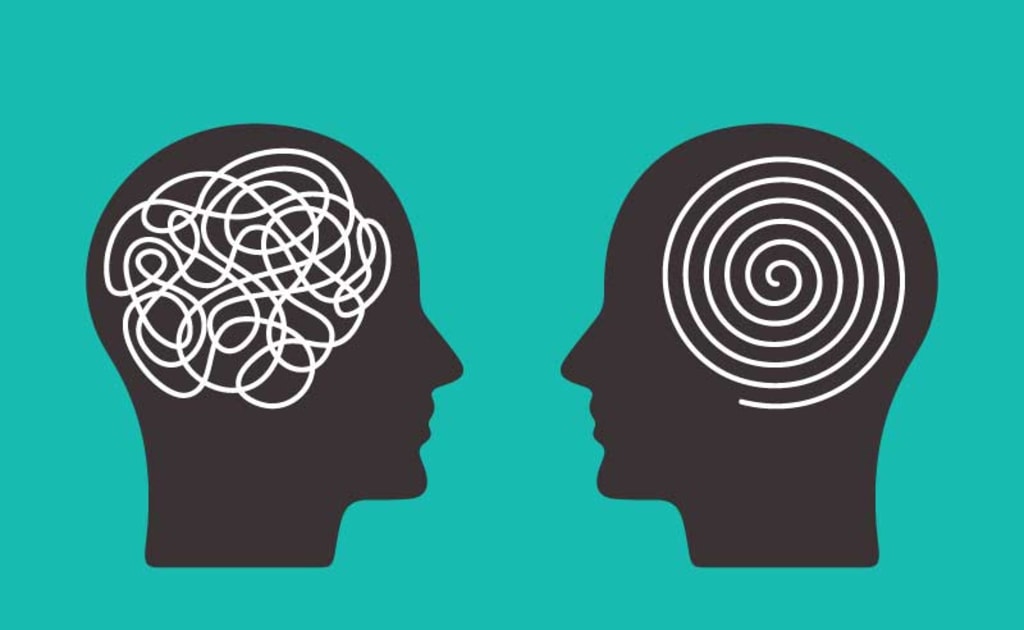
In today's fast-paced world, finding moments of peace and tranquility can be challenging. However, incorporating mindfulness practices into your daily routine can help you cultivate a calmer and happier life. Mindfulness is the practice of being fully present and aware of the present moment, without judgment. By embracing mindfulness, you can reduce stress, improve focus, and enhance overall well-being. In this article, we will explore ten mindfulness practices that can transform your life, providing inspiring real-life examples along the way.
1. Start Your Day with Mindful Breathing:
Begin each morning by taking a few minutes to focus on your breath. Sit comfortably, close your eyes, and take slow, deep breaths. As you inhale, imagine breathing in positive energy, and as you exhale, release any tension or negativity. This simple practice sets a positive tone for the day ahead, helping you stay centered and calm.
Example: Amelia, a busy working professional, starts her day with mindful breathing. This practice allows her to let go of any lingering stress from the previous day and approach her work with a clear and focused mind.
2. Practice Gratitude:
Take a moment each day to reflect on the things you are grateful for. It could be as simple as appreciating a beautiful sunset or expressing gratitude for the people in your life. Cultivating gratitude helps shift your focus from what's lacking to what's abundant, fostering a sense of contentment and happiness.
Example: Jade, a father of two, keeps a gratitude journal. Every evening, he writes down three things he is grateful for that day. This practice helps him appreciate the small joys in life and strengthens his bond with his family.
3. Engage in Mindful Eating:
In our fast-paced society, we often rush through meals without truly savoring the experience. Mindful eating involves paying attention to the taste, texture, and aroma of each bite. Slow down, chew your food thoroughly, and savor every mouthful. This practice not only enhances your enjoyment of food but also promotes healthier eating habits.
Example: Lisa, a health-conscious individual, practices mindful eating by setting aside distractions during meals. She savors each bite, noticing the flavors and textures, and feels a deeper connection with her body's nutritional needs.
4. Take Mindful Breaks:
In the midst of a busy day, it's essential to take short breaks to recharge and refocus. Engage in a mindful activity during these breaks, such as stretching, going for a short walk, or practicing deep breathing. These moments of mindfulness can help reduce stress and increase productivity.
Example: Mark, a corporate executive, incorporates mindful breaks into his workday. He sets a reminder every hour to take a five-minute break, during which he practices deep breathing exercises. This practice helps him stay calm and focused, even during high-pressure situations.
5. Practice Mindful Listening:
In our fast-paced conversations, we often listen with the intention to respond rather than truly understanding the other person. Mindful listening involves giving your full attention to the speaker, without interrupting or judging. By practicing mindful listening, you can deepen your connections with others and foster empathy.
Example: Emily, a teacher, practices mindful listening with her students. She creates a safe space for them to express themselves and actively listens without judgment. This practice helps her build stronger relationships with her students and creates a positive learning environment.
6. Embrace Mindful Movement:
Engaging in physical activities mindfully can transform your exercise routine into a meditative experience. Whether it's yoga, running, or dancing, focus on the sensations in your body, the rhythm of your breath, and the present moment. This practice not only enhances physical well-being but also promotes mental clarity.
Example: David, a yoga enthusiast, practices mindful movement during his yoga sessions. He pays attention to his body's alignment, breath, and the sensations that arise during each pose. This practice allows him to find inner peace and rejuvenation.
7. Cultivate Mindful Relationships:
Mindfulness can significantly impact your relationships by fostering deeper connections and understanding. Practice being fully present when spending time with loved ones, listening attentively, and expressing genuine care and compassion. By cultivating mindful relationships, you can create a harmonious and supportive environment.
Example: Sarah and Tom, a married couple, practice mindful communication in their relationship. They set aside dedicated time each day to talk and actively listen to each other's thoughts and feelings. This practice strengthens their bond and helps them navigate challenges with empathy and understanding.
8. Practice Mindful Digital Detox:
In today's digital age, constant connectivity can lead to stress and overwhelm. Take regular breaks from technology by practicing a mindful digital detox. Disconnect from screens, engage in activities that bring you joy, and reconnect with the present moment. This practice allows you to recharge and find balance in your relationship with technology.
Example: Alex, a social media manager, practices mindful digital detox every weekend. He spends time in nature, engages in hobbies, and connects with loved ones without the distractions of technology. This practice helps him find inner peace and maintain a healthy work-life balance.
9. Cultivate Self-Compassion:
Mindfulness involves treating yourself with kindness and compassion. Embrace self-compassion by acknowledging your strengths and weaknesses without judgment. Practice self-care activities that nourish your mind, body, and soul, such as meditation, taking baths, or engaging in hobbies you love.
Example: Emma, a busy parent, practices self-compassion by setting aside time each day for self-care. She enjoys a warm bath, reads a book, or practices meditation. This practice helps her recharge and show up as her best self for her family.
10. End Your Day with Mindful Reflection:
Before going to bed, take a few moments to reflect on your day. Acknowledge your accomplishments, express gratitude for the positive experiences, and let go of any negative emotions or thoughts. This practice allows you to end the day on a positive note and promotes restful sleep.
Example: Michael, a student, practices mindful reflection before sleep. He writes in his journal, reflecting on the highlights of his day and expressing gratitude. This practice helps him unwind and ensures a peaceful night's sleep.
Incorporating mindfulness practices into your daily life can transform your experience, leading to a calmer and happier existence. By embracing mindful breathing, gratitude, mindful eating, mindful breaks, mindful listening, mindful movement, mindful relationships, mindful digital detox, self-compassion, and mindful reflection, you can cultivate a more present and fulfilling life. Start small, be consistent, and witness the positive impact mindfulness can have on your overall well-being.





Comments
Lorraine is not accepting comments at the moment
Want to show your support? Send them a one-off tip.